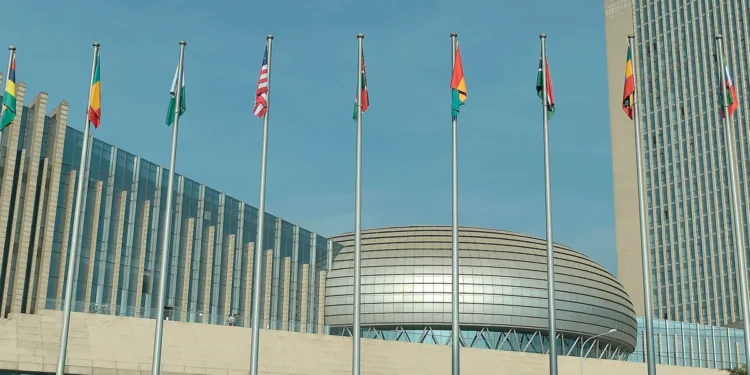The African Union (AU) says it will provide fertilizers to smallholder farmers through small and medium enterprises (SME) ventures and other similar businesses.
The AU recognized that the continent produces approximately 30 million metric tons of mineral fertilizer each year but lamented that most of them are not accessed by local farmers, hence the need to create ways to make fertilizers accessible.
This was disclosed in the Nairobi Declaration on Africa Fertilizer and Soil Health Summit, Kenya dated May 9, 2024.
The declaration came after a three-day meeting with relevant stakeholders in the agricultural sector.
The event also drew representatives of heads of government to brainstorm on how to ensure an agricultural revolution for Africa’s economic progression.
AU said in order to make fertilizers available for farmers and improve the agricultural sector, it would rely on multi-stakeholder partnerships to establish SMEs ventures, among other action plans.
The statement partly read,
“We hereby endorse the Fertilizer and Soil Health Action Plan and the Soil Initiative for Africa Framework as key guiding documents to harness multi-stakeholder partnerships and investment to drive policies, finance, research and development, markets, and capacity building for fertilizer and sustainable soil health management in Africa.
“On Fertilizers,
“We commit to triple domestic production and distribution of certified quality organic and inorganic fertilizers by 2034 to improve access and affordability for small holder farmers through the following actions:
“Prioritize local production and blending of mental fertilizers using locally available raw materials;
“Strengthen research and development on the utilization of inorganic and organic by resuscitating the Atrian Centre for Fertilizer Development in Harare;
” Provide incentives for local production, utilization and recycling of organic resources.
“Leverage opportunities offered by decentralized, low-carbon, and circular fertilizer production
“Establish small and medium (E) ventures, especially by youth and women, oriented to the production and distribution of organic and inorganic fertilizers
“Leverage the African Continental Free Trade Ares (ACFTA) double intra-Africa fertilizer trade by 2034.
“We commit to make available by 2034, to 70% of small holder semens on the continent, targeted agronomic recommendations for specific crops, soils, and climatic conditions to ensure greater efficiency and sustainable use of fertilizers through the following actions.”
Nairametrics previously reported that the AU decried Africa’s unusual reliance on the global market, noting that the continent can be self-reliant if the needed cooperation crystalizes.
It maintained there is a dire need to expand the last-mile delivery system in Africa, thereby shortening the distances that African farmers travel to access fertilizer and other critical farm inputs.
In its declaration, it supported the efforts of rural gas-producing member States in production, urging them to increase their production and ensure availability at stable prices.
More insight
- AU’s call agrees with a 2022 World Bank report, which disclosed the anomalies associated with agricultural produce from Africa.
- The report stated that while the African continent produces approximately 30 million metric tons of fertilizer annually, twice as much as it consumes, approximately 90% of fertilizer consumed especially in Sub-Saharan Africa is imported out of the continent.
- But the AU, through its Africa Fertilizer and Soil Health Summit, has agreed on action plans for the planned agricultural revolution.

























Efficiently distributing fertilizers in Africa is crucial for addressing soil fertility depletion and achieving food security, a combination of inorganic and organic fertilizers is needed to address nutrient depletion, and the need for advocates in national and global institutions to share the costs of fertilizer use.